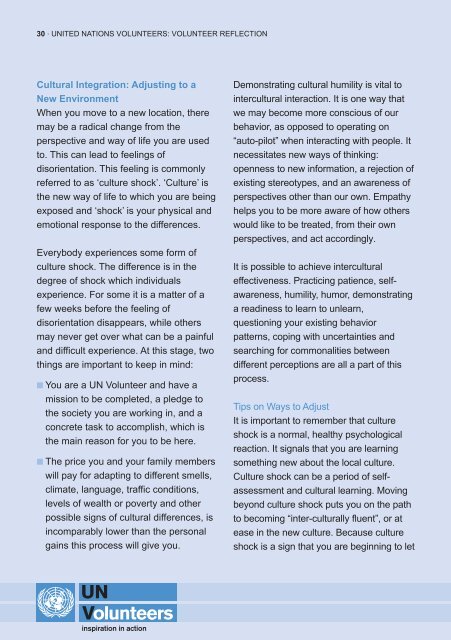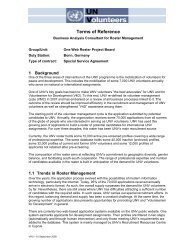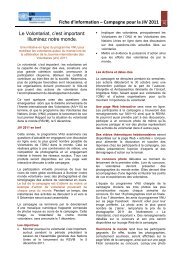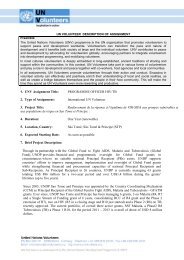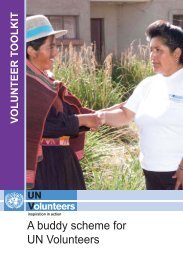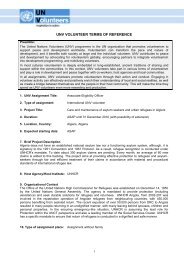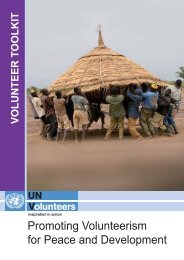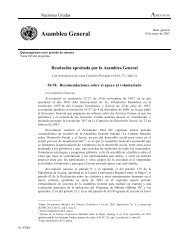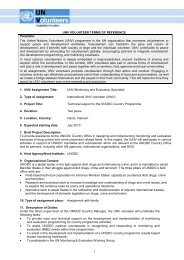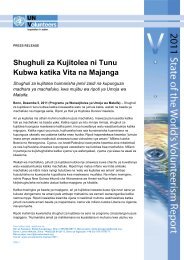Volunteer reflection - United Nations Volunteers
Volunteer reflection - United Nations Volunteers
Volunteer reflection - United Nations Volunteers
You also want an ePaper? Increase the reach of your titles
YUMPU automatically turns print PDFs into web optimized ePapers that Google loves.
30 . UNITED NATIONS VOLUNTEERS: VOLUNTEER REFLECTIONCultural Integration: Adjusting to aNew EnvironmentWhen you move to a new location, theremay be a radical change from theperspective and way of life you are usedto. This can lead to feelings ofdisorientation. This feeling is commonlyreferred to as ‘culture shock’. ‘Culture’ isthe new way of life to which you are beingexposed and ‘shock’ is your physical andemotional response to the differences.Everybody experiences some form ofculture shock. The difference is in thedegree of shock which individualsexperience. For some it is a matter of afew weeks before the feeling ofdisorientation disappears, while othersmay never get over what can be a painfuland difficult experience. At this stage, twothings are important to keep in mind:■ You are a UN <strong>Volunteer</strong> and have amission to be completed, a pledge tothe society you are working in, and aconcrete task to accomplish, which isthe main reason for you to be here.■ The price you and your family memberswill pay for adapting to different smells,climate, language, traffic conditions,levels of wealth or poverty and otherpossible signs of cultural differences, isincomparably lower than the personalgains this process will give you.Demonstrating cultural humility is vital tointercultural interaction. It is one way thatwe may become more conscious of ourbehavior, as opposed to operating on“auto-pilot” when interacting with people. Itnecessitates new ways of thinking:openness to new information, a rejection ofexisting stereotypes, and an awareness ofperspectives other than our own. Empathyhelps you to be more aware of how otherswould like to be treated, from their ownperspectives, and act accordingly.It is possible to achieve interculturaleffectiveness. Practicing patience, selfawareness,humility, humor, demonstratinga readiness to learn to unlearn,questioning your existing behaviorpatterns, coping with uncertainties andsearching for commonalities betweendifferent perceptions are all a part of thisprocess.Tips on Ways to AdjustIt is important to remember that cultureshock is a normal, healthy psychologicalreaction. It signals that you are learningsomething new about the local culture.Culture shock can be a period of selfassessmentand cultural learning. Movingbeyond culture shock puts you on the pathto becoming “inter-culturally fluent”, or atease in the new culture. Because cultureshock is a sign that you are beginning to let


